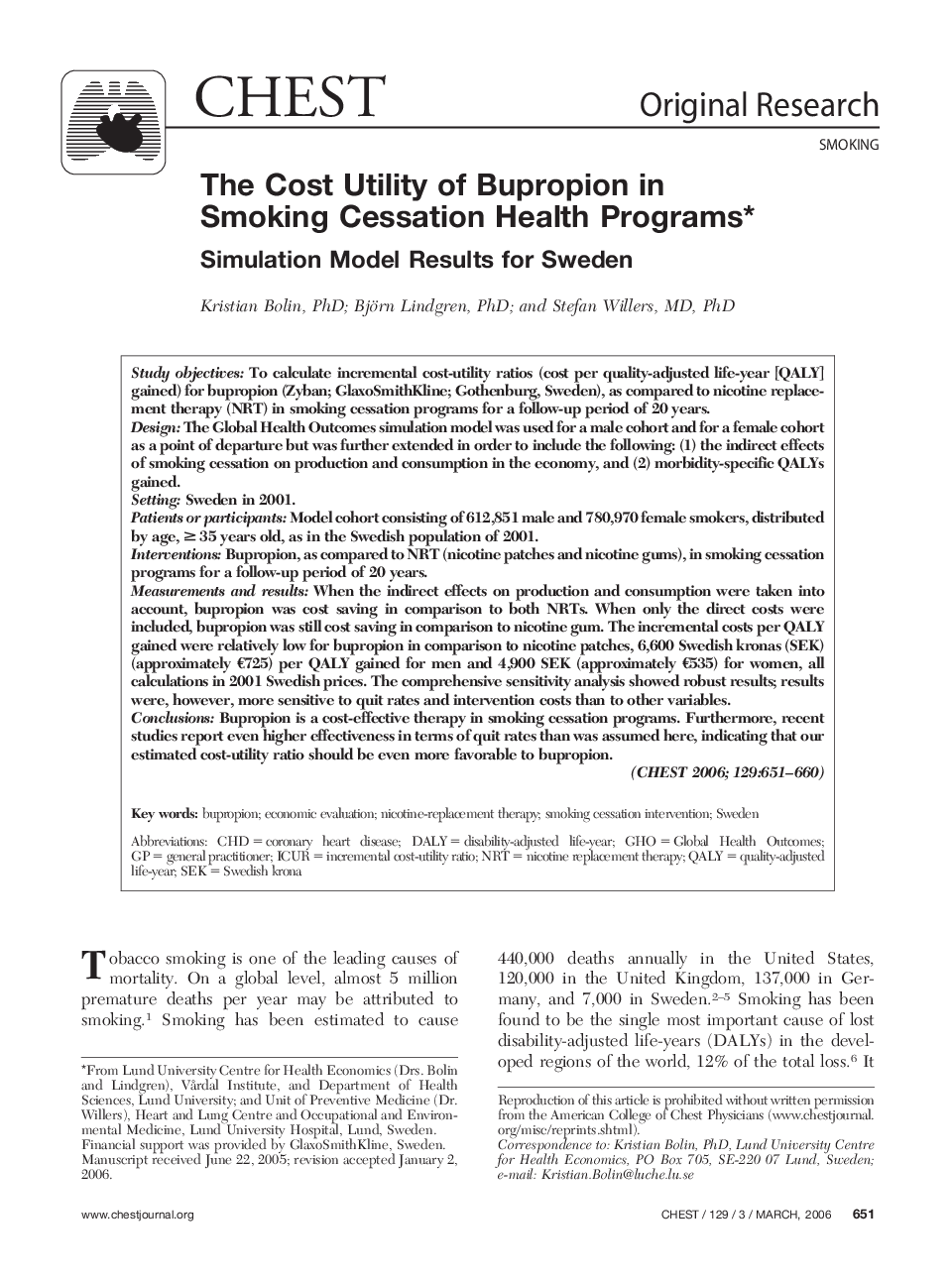| کد مقاله | کد نشریه | سال انتشار | مقاله انگلیسی | نسخه تمام متن |
|---|---|---|---|---|
| 2905779 | 1173436 | 2006 | 10 صفحه PDF | دانلود رایگان |

Study objectives:To calculate incremental cost-utility ratios (cost per quality-adjusted life-year [QALY] gained) for bupropion (Zyban; GlaxoSmithKline; Gothenburg, Sweden), as compared to nicotine replacement therapy (NRT) in smoking cessation programs for a follow-up period of 20 years.Design:The Global Health Outcomes simulation model was used for a male cohort and for a female cohort as a point of departure but was further extended in order to include the following: (1) the indirect effects of smoking cessation on production and consumption in the economy, and (2) morbidity-specific QALYs gained.Setting:Sweden in 2001.Patients or participants:Model cohort consisting of 612,851 male and 780,970 female smokers, distributed by age, ≥ 35 years old, as in the Swedish population of 2001.Interventions:Bupropion, as compared to NRT (nicotine patches and nicotine gums), in smoking cessation programs for a follow-up period of 20 years.Measurements and results:When the indirect effects on production and consumption were taken into account, bupropion was cost saving in comparison to both NRTs. When only the direct costs were included, bupropion was still cost saving in comparison to nicotine gum. The incremental costs per QALY gained were relatively low for bupropion in comparison to nicotine patches, 6,600 Swedish kronas (SEK) (approximately 725) per QALY gained for men and 4,900 SEK (approximately 535) for women, all calculations in 2001 Swedish prices. The comprehensive sensitivity analysis showed robust results; results were, however, more sensitive to quit rates and intervention costs than to other variables.Conclusions:Bupropion is a cost-effective therapy in smoking cessation programs. Furthermore, recent studies report even higher effectiveness in terms of quit rates than was assumed here, indicating that our estimated cost-utility ratio should be even more favorable to bupropion.
Journal: Chest - Volume 129, Issue 3, March 2006, Pages 651–660